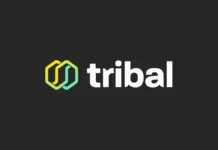
It is a cool surprise for anyone after discovering that the team behind recently smart electronic payment methods in Egypt, their eldest member is 25.
“Looking around, we find that cash holders, or cash collectors, are facing the risk of fraud, their money being stolen, or waiting long-time for collecting cash,” Alain El-Hajj, PayMob COO, 24, and Co-founder, said.
“We see that every merchant is having a problem in the payment methods, whether the know-how of collecting money, or problems facing delivery men themselves; cases are a lot,” he added.
Such innovative services are being used for performing payment transactions via a card or a mobile phone, paying on delivery, in store or for online shopping.
To dig deep in the journey behind our young geeks, how they are working hard to make a real change in the technology of payment in Egypt, El-Hajj, PayMob added that the team’s goal is to convert Egyptian cash payment to electronic one in order to facilitate payment among money senders and receivers in such long supply chain.
“Our main goal is to converting Egyptian society to a cash-less society, ” said El-Hajj enthusiastically.
According to El-Hajj, PayMob started operating in 2013, trying to grow and grow till it managed to provide a number of different and innovative services in payment technology.
The 15-member young team have grown after the three co-founders: Alain with his two university friends Mostafa Menessy, and Islam Shawky who were colleagues in the American University in Cairo (AUC), started to work on their own business.
Safe payment or collecting money is something critical for several segments in the society: ordinary citizens, merchants, cash on-delivery services, or online shopping.
Went through how Alain and his Co-founders enable users through technology, Mostafa Menessy, 23, PayMob CTO, say: “we provide both services for two main pillars of electronic payment operations: Acceptance and Issuance.”
For acceptance, a term refers to enabling a merchant to receive money electronically, PayMob provide online payment gateways which used by services to provide online credit card payment, credit card payment-on delivery service, which is sending a delivery man with an electronic machine for collecting money via credit cards to empower clients to depend on credit cards in payment in case they are facing any trust issues or infrastructure limitations that wouldn’t allow them to use their credit card for online purchase.
In addition, Menessy noted that credit card payment-on delivery service is one of the first of its kind idea that will have a patent license for it, as our team considered the first one to bring such a kind of payment worldwide.
“Coming to issuance, we have a lot to provide such as building mobile wallets, which means having a virtual wallet, but this is time through mobile operators, as well as through your bank. The service helps customers in doing cash-in, cash-out, and money transfers.
” Users can send and receive money through their mobiles by entering certain codes; it is a service currently used by all mobile operators in Egypt. One of our new technologies after we found that the users can only send and receive only if they are in the same network, is changing this by partnering with global and local payment networks to let it be open to receive and send among all users,” he added.
Have a general look on the Egyptian Fintech ecosystem, local experts find that regulators are still overly concerned. Regulators have to look at international standards applied in security, mobiles and operations and set a guideline and a framework for investors to choose from. Of course a clear framework will help innovate faster.
The Central Bank of Egypt (CBE), the body that is monitoring all financial transaction in Egypt, said that the country is in a dire need to be a cash-less society, welcoming more innovative providers for more electronic payment services.
According to local experts in finance, cash issuance in Egypt is too costy as it absorbs from 0.5 to 1.5 per cent of the GDP.
According to Egypt Business Directory online portal, most of online transactions carried out by Egyptians falls in the categories of electronics, airline tickets and fashion. About 75 per cent of users, in terms of demographics of these transactions, are in their 30s or less and half of them are located in Cairo.
In Egypt, only 7 per cent of the population is banked and only 7.6 million people have credit or debit cards. For e-commerce, 80 per cent relies on cash on delivery. Meanwhile, 7 per cent of the population is banked; only 7.6 million have credit and debit cards, despite the fact that the government-related institutions provided payrolls via banking accounts instead of cash.
However, the rate of credit card issuance is growing annually by more than 40 per cent, which indicates that cash dependency may decrease.
“PayMob’s team is currently processing millions of transactions and hundreds of millions of dollars per year, the company achieved a 75x growth rate in first two quarters of 2016 and plans to reach 200x before the end of the year,” according to the PayMobCEO, Islam Shawky. 25.
Shawky said that our challenge was to prove that technology innovation is not just coming from abroad, but as Egyptian innovators are able to solve many payment issues in Egypt and the region. “We envision a world where sending a payment is as easy as sending an SMS.”
“Now, we are proud to prove there are innovative applicable services we do bring to Egypt, hoping to penetrate more emerging markets around the middle east and Africa Those regions do have an appetite to new technologies that facilitate their everyday payments,” Shawky added.
Months ago, the young geeks have managed to secure a seed fund from A15, one of leading Venture Capital companies, as the later is strongly believing to achieve the collective vision of an advanced cashless society.



